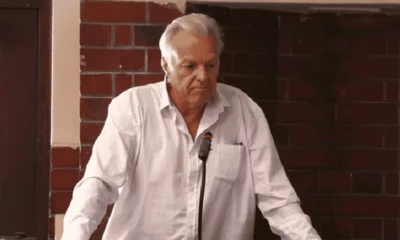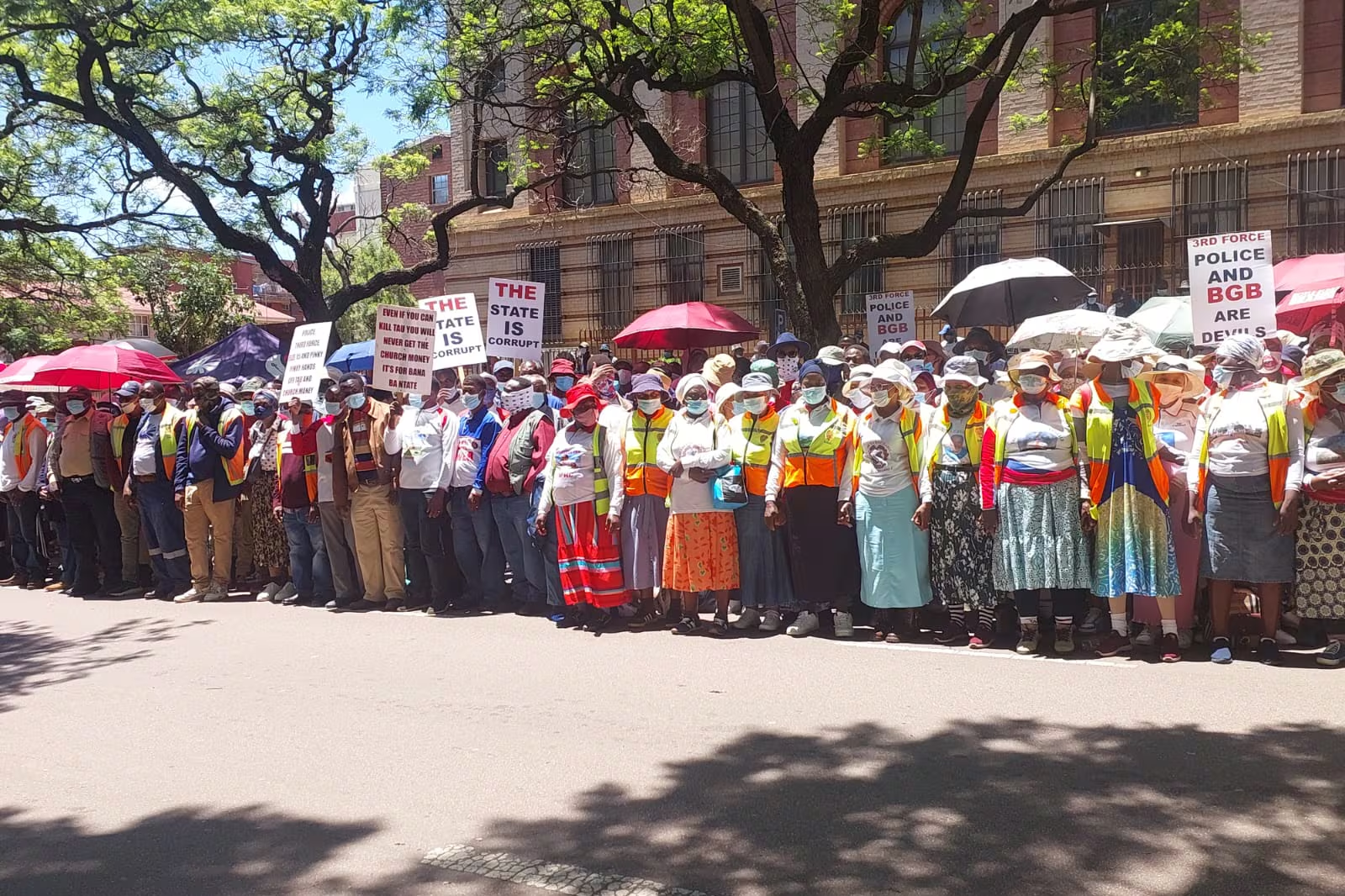News
Public Outcry or Legal Strategy? Inside the Bail Battle of Tiffany Meek

What happens when justice for a murdered child collides with courtroom strategy? In the case of Tiffany Meek, mother of the late Jayden-Lee Meek, the legal battle has taken a sharp turn, and the debate around public sentiment is at its centre.
At the Roodepoort Magistrate’s Court on Friday, Meek’s defence lawyer, Noven Naidoo, argued that there was no real public outrage surrounding his client’s possible release on bail. The court, however, is facing a very different narrative from the State, one backed by handwritten petitions, digital campaigns, and emotional protest scenes outside police stations.
Grief Turns to Anger
The heartbreaking murder of 11-year-old Jayden-Lee, who went missing while walking home from school, shook the community of Fleurhof to its core. His mother, Tiffany Meek, had been vocal in the early days, calling for justice and visibility. Her later arrest in connection with the murder was nothing short of shocking for many residents.
Outside the Florida police station, residents rallied. Activists demanded stronger policing, a dedicated station in Fleurhof, and urgent attention to Jayden-Lee’s case. In the midst of this outrage, a petition opposing bail for Meek began to circulate. It gained serious traction.
The Petition Debate
The court heard that the online petition had over 5,900 signatures by midday, far surpassing the 2,500 mentioned earlier. The magistrate confirmed its existence, with a physical copy in hand, but asked for access to the handwritten version too.
Naidoo countered the validity of the petition, claiming it was created only after the court’s request and alleging that its support had been inflated by activists offering free transport and urging bystanders to sign outside court. He specifically named community activist Natalie Solomons, accusing her of manufacturing the public outcry for appearance’s sake.
But the investigating officer pushed back. He told the court that the public response began before the court asked for any petition and that the emotional backlash erupted once the community learned who had been arrested.
Courtroom Tensions and Social Media Storms
Naidoo continued to paint a picture of manipulation. He warned that if another suspect were arrested, the same community now calling for justice might shift its support back to Meek and her family. He called the petition “social media-fuelled” and accused the State of bending under digital pressure.
He also sharply criticised SAPS, accusing them of dragging their feet and failing to properly investigate. Naidoo claimed that community activists had done more legwork than police, going door to door, searching flats, and sharing what they claimed was evidence. He referenced a bloody pillow and suspected semen allegedly found in a nearby unit, which Solomons posted about to her 100,000+ followers online.
Justice in the Age of Public Opinion
The unfolding bail hearing is not just about whether Tiffany Meek should be released. It is about who holds power in the court of public opinion and how that power influences real legal decisions.
The case has laid bare the tension between social justice, community mobilisation, and courtroom fact-finding. Whether the petitions reflect true grassroots emotion or a curated digital campaign remains a key question for the magistrate to consider.
What is certain is that the tragic death of a young boy has stirred both grief and anger, and that anger is being played out in a public and judicial arena simultaneously.
Also read: Bail Hearing for Tiffany Meek Enters Day Five Amid Conflicting Testimonies
Follow Joburg ETC on Facebook, Twitter , TikTok and Instagram
For more News in Johannesburg, visit joburgetc.com
Source: IOL
Featured Image: EWN


























